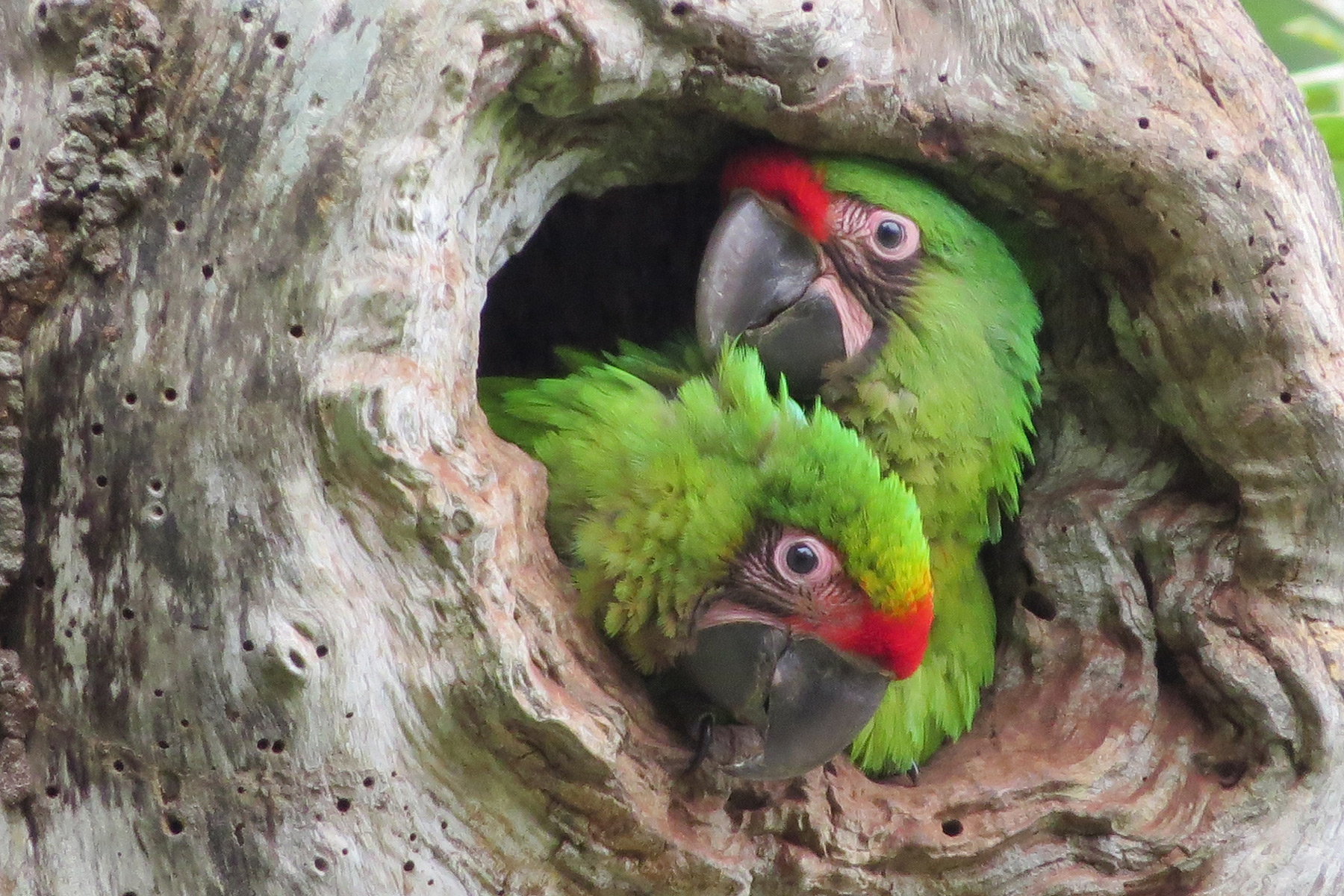The Ecuadorian NGO safeguarding 10% of the world’s bird species

Great green macaw in Las Balsas reserve © José León - Jocotoco
12.01.2024
The Jocotoco Foundation, an Ecuadorian non-profit organisation supported by ERF grantee partner the World Land Trust, is responsible for protecting a staggering 10% of the world’s bird species. The organisation has established 15 reserves across the country, totalling up to 33,000 hectares, that work with a range of partners, including local communities. Each reserve has been selected to protect areas that are globally significant for bird conservation, ranging from the lowlands of the Amazon rainforest to the Galapagos Islands.
With more than 1,000 species of birds that call the reserves home, 51 are threatened with extinction on a global scale. Additionally, these reserves also safeguard at least 200 species of amphibians and reptiles, many of which are threatened and range-restricted, and also several that are newly discovered to science. They are joined by large and rare mammals, including Spectacled Bear, Mountain Tapir, Chocó Tapir, Puma, and Jaguar.
Martin Schaefer, CEO of Jocotoco, discussed the group’s adaptive approach with Mongabay, a conservation news website: “For each species, we analyse its threats…Then, we determine the best approach. Sometimes, working with communities or local authorities to save threatened forests is most effective. In other cases, acquiring land to block logging roads of industrial timber companies is the better strategy.”
“In continental South America, habitat loss is the most significant threat, and we counter it by collaborating with communities or protecting land, whether it is ours or that of third parties,” he explained. “On the Galapagos, invasive species pose the greatest threat to native biodiversity. Here, we work with the authorities to control or eradicate invasive species such as rats or mice, which also damage crops.”
In addition to preserving habitats, Jocotoco has integrated ecotourism, community engagement and education, and scientific research and monitoring into its conservation strategy. The organisation works closely with local communities to promote conservation awareness and sustainable practices.
Schaefer explained that ecotourism has always been an important part of the organisation’s operations, generating employment opportunities and revenue for people living around their reserves. He also noted that it “allows us to showcase how effective we, Jocotoco, can be in protecting nature. Nature heals on its own. All we need to do it is to give it a chance to do so. By having lodges in our reserves, Jocotoco enables visitors to witness the wonderful habitats and species they otherwise rarely encounter. For many Ecuadorians, it is a rare chance to see the beauty and diversity of their surroundings. Thus, our model has always been to welcome the public, as you can only love what you know.”
Schaefer concluded that while they currently safeguard 10% of the planet’s bird species, one ambition is to “bring this number up to 15%”.